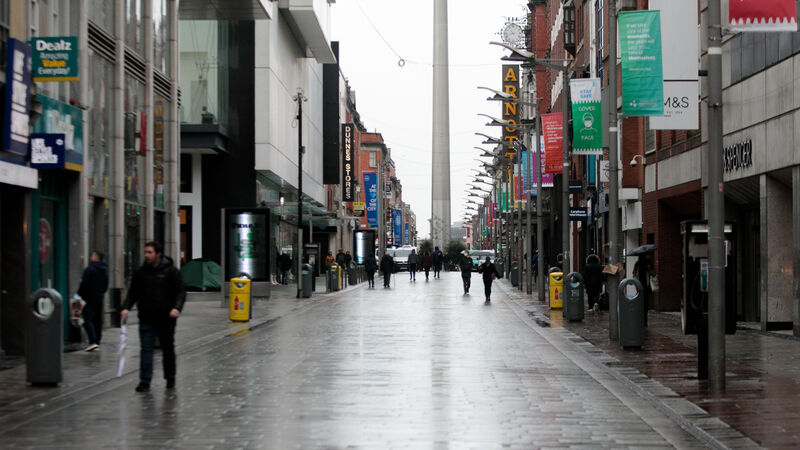Covid cases need to fall below 200 per day before country can reopen, says Nphet

A quiet Henry St in Dublin’s city centre: Senior ministers are understood to be worried about "unreal expectations" building around the prospect of a speedy relaxation of restrictions. Picture: Gareth Chaney/Collins
Positive Covid-19 cases will have to fall to between zero and 200 per day to allow the country to reopen safely, the Government’s senior medical advisors have said.
In the clearest indication to date as to what is required to reopen the country, it is also understood that the reproduction rate of the virus will need to fall to 0.5 given the virulence of the new strains of Covid-19.










